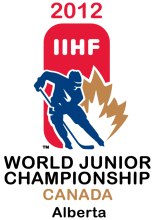CALGARY – Any player will tell you it’s the toughest game to play. Yes, a medal is at stake, but the two teams that take to the ice competing for bronze medals have just lost heartbreaking games. The only good thing is that they have also both had a day off to nurse their wounds, re-fortify their prides, and get to the rink with a final goal. After all, winning a medal is a lot better than fourth place, which are the only choices for Canada and Finland on Thursday.
Historically, Canada doesn’t usually fare too well in bronze games, but in U20 play, since the tournament went to a playoff format in 1996, the country is 2-0 in third-place battles. And, Finland is 4-0 over the same time period. In other words, these kids want a medal of some colour. They can’t have gold or silver, so their focus is on bronze.
Canada has the decided advantage in some ways, but the Finns cannot be discounted by any stretch. First, of course, Canada won the first meeting in Edmonton less than two weeks ago, an 8-1 pounding. As well, this was the seventh straight win by Canada over Finland, the last Suomi win coming at the 2001 U20.
However, that effects of the earlier result must be mitigated by the fact that Finland’s goalie was Christopher Gibson, the team’s backup. With Sami Aittokallio in goal, Finland has been a different team since. Regardless who wins the bronze, the score will not be 8-1.
The crowd, of course, will be cheering heartily for the Canadians, which is great. But in some ways this is a must-win game for the players and coaches. Imagine if someone had said before the tournament that Canada, playing at home in front of record crowds and before millions of fans watching TSN, wouldn’t win any kind of medal! Finishing fourth would be a major setback for Hockey Canada and the players.
In fact, this pressure might well be to Finland’s advantage. Canada is used to pressure, though, but it has to do well in the bronze game what it failed to do in the semi-finals against the Russians. The number-one killer for the Canadians was discipline. They must rein in their emotions yet play emotionally. They can’t take lazy or stupid penalties, and they can’t take misconducts because of their inexperience. This is as much the coaches’ duty to ensure discipline as the players.
Canada has accrued 117 penalty minutes, tops among the ten teams, while Finland is second-last with only 48 minutes. On the flip side, Canada’s penalty killing is second only to Russia, allowing just three goals on 27 chances against. Finland’s impressive power play has been operating near 26 per cent, though, so if Canada takes too many penalties, they do so at their own peril.
Finland has a decisive advantage in goal – maybe. The starter will likely be Aittokallio who has had a superb tournament, with two important exceptions. His blunder behind his own net led to the tying goal in the final two minutes against Sweden, and in the shootout he allowed two goals on three shots in the loss that sent Finland to the bronze game. If he can regain his confidence, he can be the difference between winning and losing, but that confidence looked shattered after his gaffe and in the mixed zone after the game, where the teary-eyed goalie realized the magnitude of his error.
Canada is betwixt and between right now in goal. Just when it looked like Scott Wedgewood was ready to assume the position of starter, he had a lacklustre game against Russia. Mark Visentin wasn’t tested to any great degree in the preliminary round, allowed an early goal in his relief appearance against the Russians, and ended the 2011 U20 horribly. Who does coach Don Hay start for bronze? It’s anyone’s guess, but whoever it is had better step up and play well for 60 minutes.
Canada’s ability to create offence and score goals has been its strong suit. The team has 31 goals in five games while the Finns have 29 in six games. Mark Stone and Ryan Strome have been the big guns, with nine points each, while Finland boasts two top scorers of its own in Mikael Granlund (eleven points) and Teemu Pulkkinen (nine).
More than ever, the bronze-medal game is about pride for Canada. For Finland, which finished sixth last year, the tournament will be an improvement, but without a bronze a disappointment.
ANDREW PODNIEKS |
 |
 |







